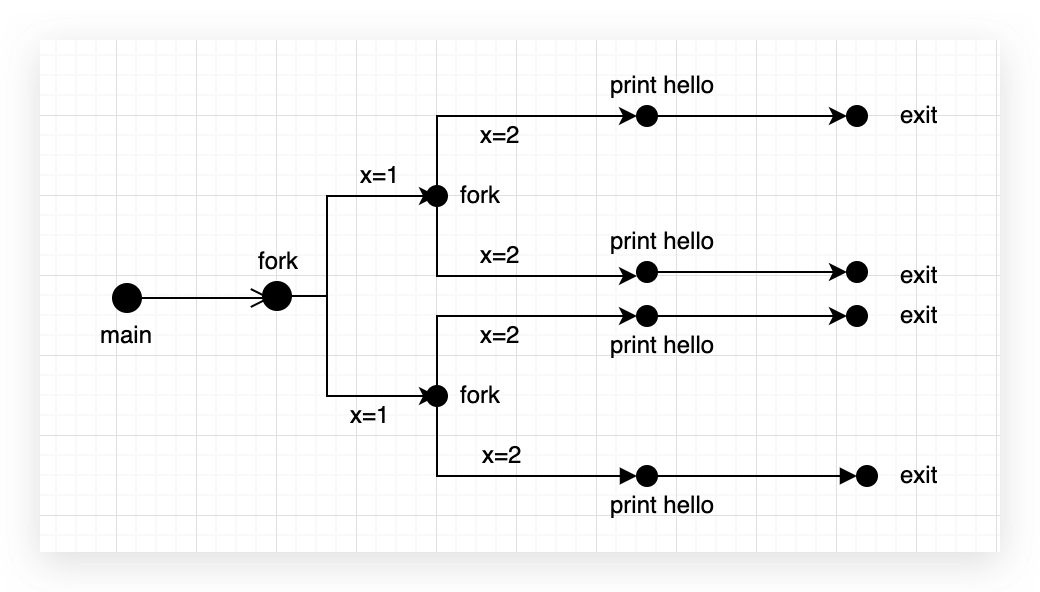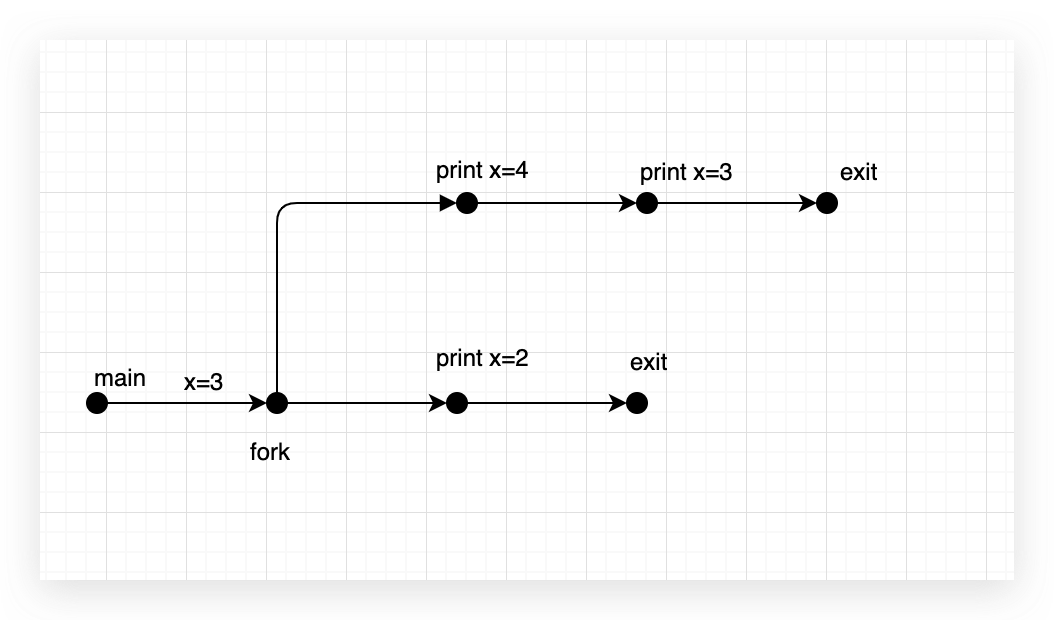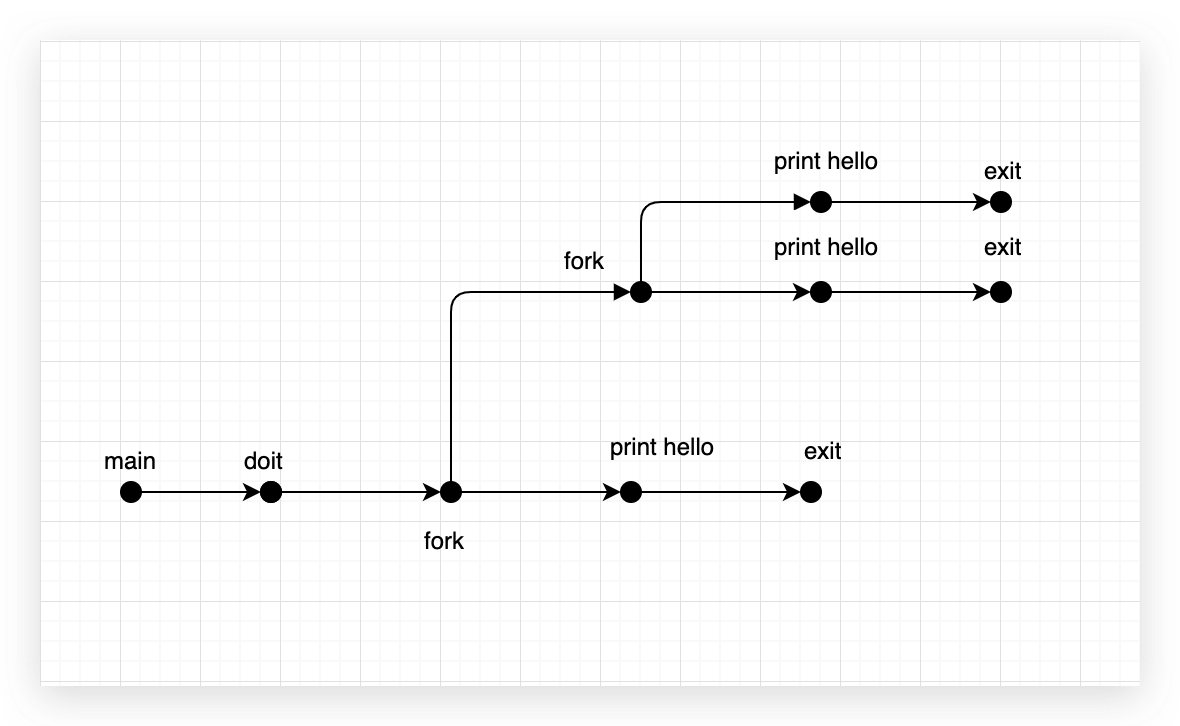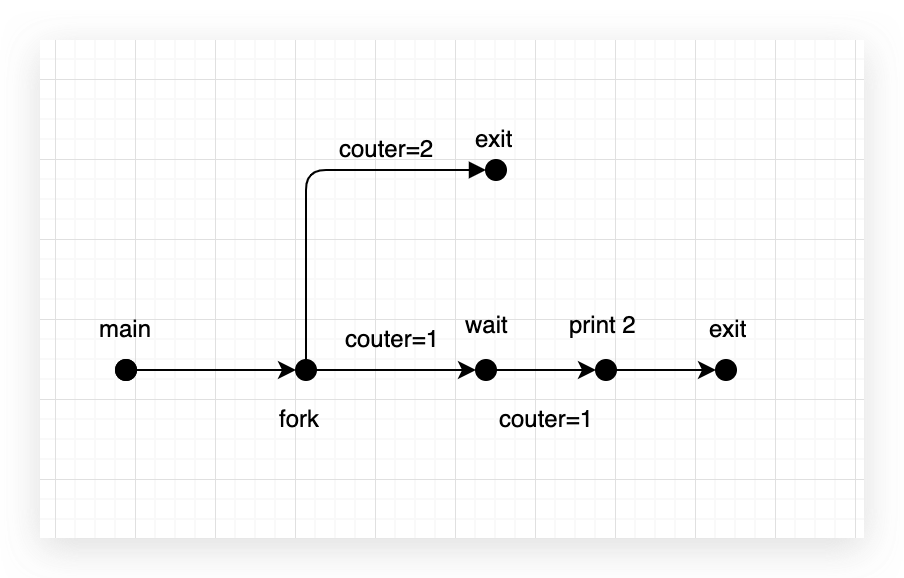作为程序员,理解ECF很重要,这有一些原因:
- 理解重要的系统概念
- 理解应用程序是如何与操作系统交互的
- 帮助你编写有趣的新应用程序
- 理解并发
异常
异常是异常控制流的一部分,它一部分由硬件实现,一部分由操作系统实现
8.11
#include <unistd.h>
#include <stdio.h>
int main(){
int i;
for(i=0;i<2;i++)
fork();
printf("hello
");
exit(0);
}
/*
* Result:
* hello
* hello
* hello
* hello
*/

8.12
#include <stdio.h>
#include <unistd.h>
void doit(){
fork();
fork();
printf("hello
");
return;
}
int main(){
doit();
printf("hello
");
exit(0);
}
/*
* Result:
* hello
* hello
* hello
* hello
* hello
* hello
* hello
* hello
* /

8.13
#include <stdio.h>
#include <unistd.h>
int main(){
int x = 3;
if(fork() != 0)
printf("x=%d
",++x);
printf("x=%d
",--x);
exit(0);
}
/*
* Result:
* x=4
* x=3
* x=2
*
*/

8.14
#include <stdio.h>
#include <unistd.h>
void doit(){
if(fork() == 0){
fork();
printf("hello
");
exit(0);
}
return;
}
int main(){
doit();
printf("hello
");
exit(0);
}
/*
* Result:
* hello
* hello
* hello
*/

8.15
#include <stdio.h>
#include <unistd.h>
void doit(){
if(fork()==0){
fork();
printf("hello
");
return;
}
return;
}
int main(){
doit();
printf("hello
");
exit(0);
}
/**
* Result
* hello
* hello
* hello
* hello
* hello
*/

8.16
#include <stdio.h>
#include <unistd.h>
int counter = 1;
int main(){
if(fork()==0){
counter++;
exit(0);
} else {
wait(NULL);
printf("couter = %d
",++counter);
}
exit(0);
}
/**
* Result:
* counter = 2
*/

8.18
#include <stdio.h>
#include <unistd.h>
void end(){
printf("2");
fflush(stdout);
}
int main(){
if(fork()==0)
atexit(end);
if(fork()==0) {
printf("0");
fflush(stdout);
} else {
printf(1);
fflush(stdout);
}
exit(0);
}
/**
* Result
* 0[1] 7721 segmentation fault ./a.out
*/
8.19
#include <stdio.h>
#include <unistd.h>
void foo(int n){
int i;
for(i=0;i<n;i++)
fork();
printf("hello
");
exit(0);
}
int main(){
foo(4);
return 0;
}
/**
* Result
* 2: 4
* 3: 8
* 4: 16
*/
8.21
#include <stdio.h>
#include <unistd.h>
int main(){
if(fork()==0){
printf("a");
fflush(stdout);
exit(0);
} else {
printf("b");
waitpid(-1,NULL,0);
}
printf("c");
fflush(stdout);
exit(0);
}
/**
* Result:
* abc
*/
